As global trade continues to expand at an unprecedented rate, the importance of cargo shipping containers in facilitating international commerce cannot be overstated. These versatile and robust containers serve as the backbone of supply chain logistics, enabling the efficient movement of goods across vast distances. Innovations in cargo shipping containers, from enhanced materials to smart technology integrations, are expected to shape the future of global trade significantly. This article will explore the evolving role of cargo shipping containers, examining how advancements in design, sustainability, and technology will influence shipping processes and the broader implications for trade growth. By understanding the transformative potential of these containers, stakeholders can better navigate the complexities of a rapidly changing global marketplace, ensuring that they remain competitive in an era of constant flux.
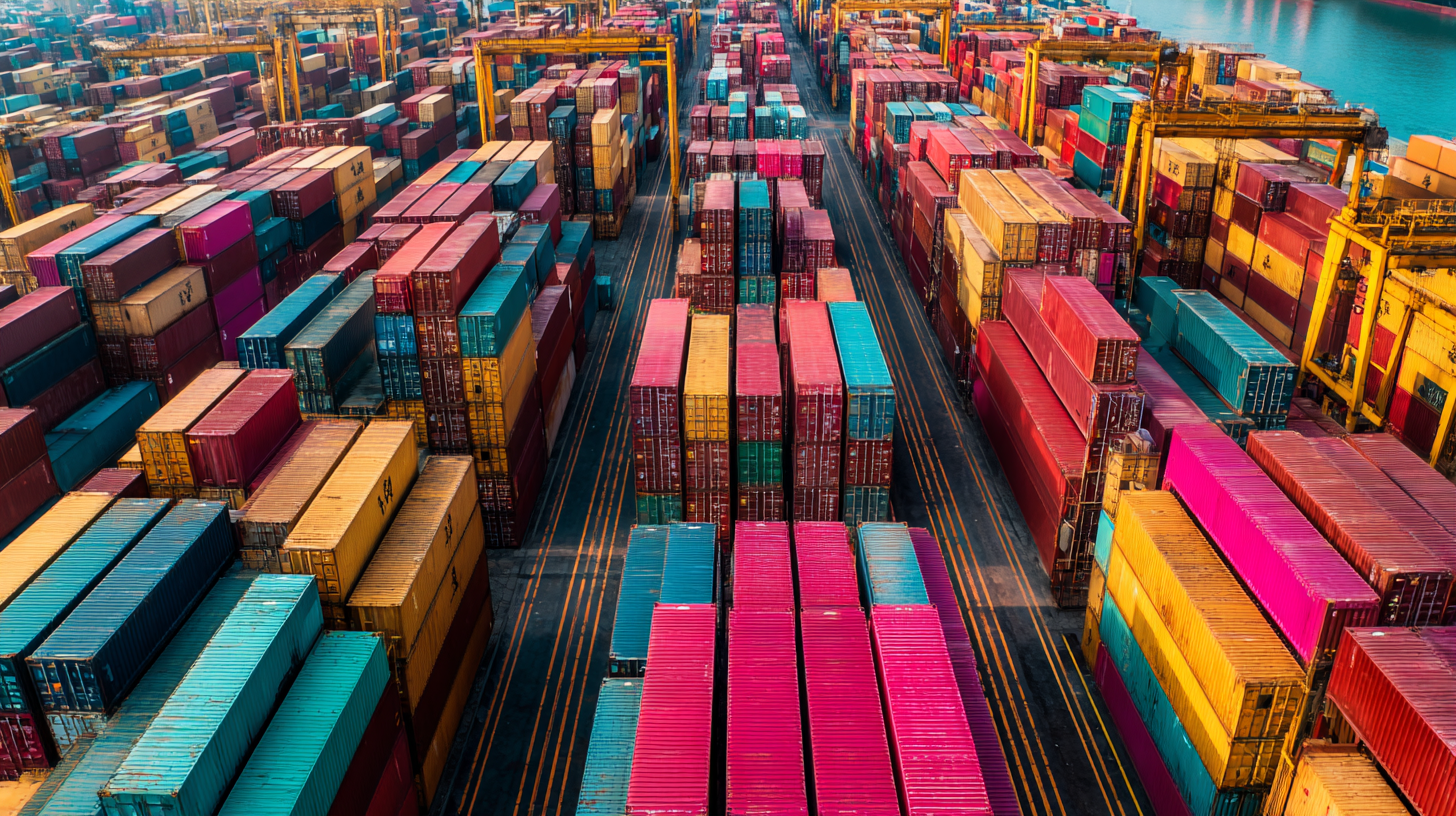
The evolution of cargo shipping containers has been marked by significant innovations that have transformed global trade logistics. Initially, containers were simply metal boxes designed for transit, but technological advancements have since introduced features such as smart tracking systems and sustainable materials. These updates not only enhance efficiency and security during transportation but also contribute to environmental sustainability, addressing growing concerns over carbon footprints and waste in shipping.
Moreover, the trend towards modular containerization has facilitated more flexible shipping solutions. Companies are increasingly adopting standardized units that can easily be transferred between various modes of transport—land, sea, and air. This adaptability allows for increased interconnectivity within supply chains, driving down costs and delivery times. As the industry moves toward automation with practices like automated terminal operations and autonomous vessels, the future of cargo shipping containers promises to further streamline processes and bolster the speed of global trade growth.
The rapid evolution of technology is reshaping the landscape of cargo shipping containers, significantly enhancing their efficiency and security. According to a report by the International Maritime Organization (IMO), the integration of the Internet of Things (IoT) in shipping containers is projected to increase operational efficiency by up to 30% by 2025. Smart containers equipped with sensors can monitor temperature, humidity, and security breaches in real-time, allowing for proactive measures that reduce spoilage and theft. This level of connectivity not only optimizes logistics but also ensures compliance with international shipping regulations.
Moreover, advancements in blockchain technology are revolutionizing the security of cargo shipping. A study from the World Economic Forum indicates that blockchain can reduce fraud and increase transparency in supply chains by providing immutable records of transactions. This technology enables all stakeholders, from manufacturers to shipping companies, to access real-time data about the cargo’s journey. As a result, the potential for streamlined processes is immense, with estimates suggesting cost reductions of up to 20% in shipping logistics. These technological innovations are pivotal not only in enhancing operational resilience but also in driving global trade growth by ensuring that goods are transported safely and efficiently across international borders.
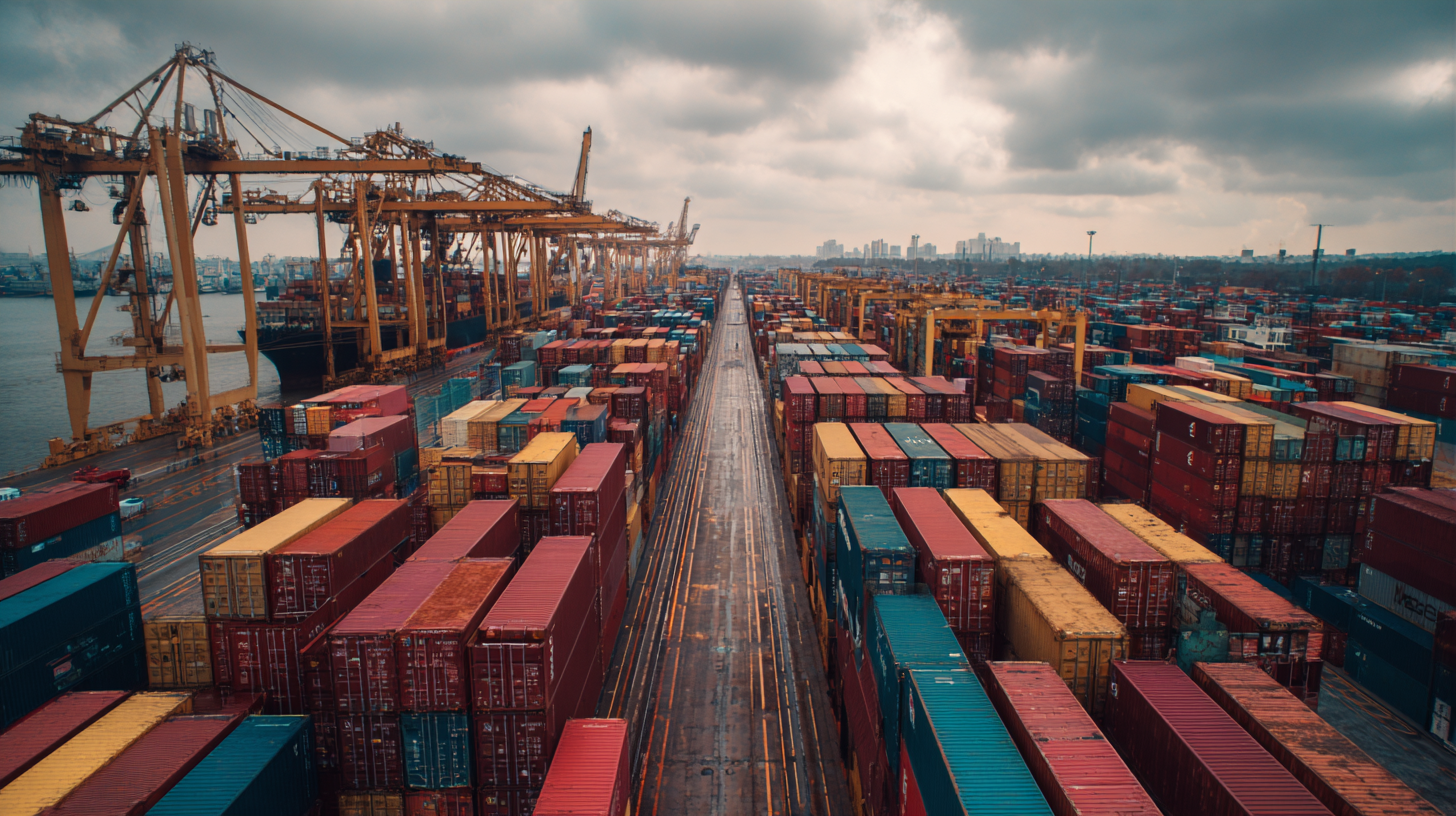
The shipping industry is undergoing a significant transformation as it grapples with environmental sustainability challenges. Hydrogen-powered vessels are emerging as a game-changing solution in maritime decarbonization. As global shipping shifts towards these innovative technologies, it not only addresses the pressing need for emission reductions but also aligns with international standards and regulations aimed at fostering a greener economy.
Tips: Companies looking to adopt sustainable practices should invest in research and explore partnerships focused on green technologies. Collaboration across sectors can amplify the impact of individual efforts, ultimately creating a robust ecosystem for sustainable logistics.
Moreover, the transition to sustainable freight transport is essential to minimizing environmental footprints while optimizing economic benefits. Diverse modalities, including rail and sea transport, offer avenues for reducing carbon emissions. The rapid growth of online shopping necessitates efficient last-mile delivery solutions, with innovations such as parcel lockers proving promising for reducing urban congestion and emissions.
Tips: Embracing sustainable logistics not only helps protect the environment but can also enhance brand reputation. Educating customers about green initiatives and their benefits can create loyalty and drive demand for eco-friendly options.
This chart illustrates the growth of global containerized cargo volume over the past few years and projects future growth rates. It highlights the increasing reliance on cargo shipping containers, reflecting their critical role in global trade and the need for sustainable practices within the industry.
The global trade landscape is significantly influenced by trade policies that shape container shipping dynamics. According to the International Maritime Organization, about 80% of global trade by volume is carried by sea, emphasizing the critical role of container shipping. In recent years, changes in trade policies, including tariffs and trade agreements, have led to fluctuations in shipping volumes. For instance, the U.S.-China trade tensions have resulted in a reported 17% decrease in container shipping rates, which highlights the immediate impact of policy changes on the shipping industry.
Moreover, research from the World Bank indicates that streamlined customs procedures and trade facilitation measures could boost global trade by up to 15%. Such policies not only enhance the efficiency of container shipping but also encourage investments in port infrastructure and logistics. As countries adapt their trade regulations, understanding these dynamics becomes essential for stakeholders in the shipping industry. The scalability of container shipping, facilitated by these global trade policies, will be crucial for sustaining trade growth in the decades to come.
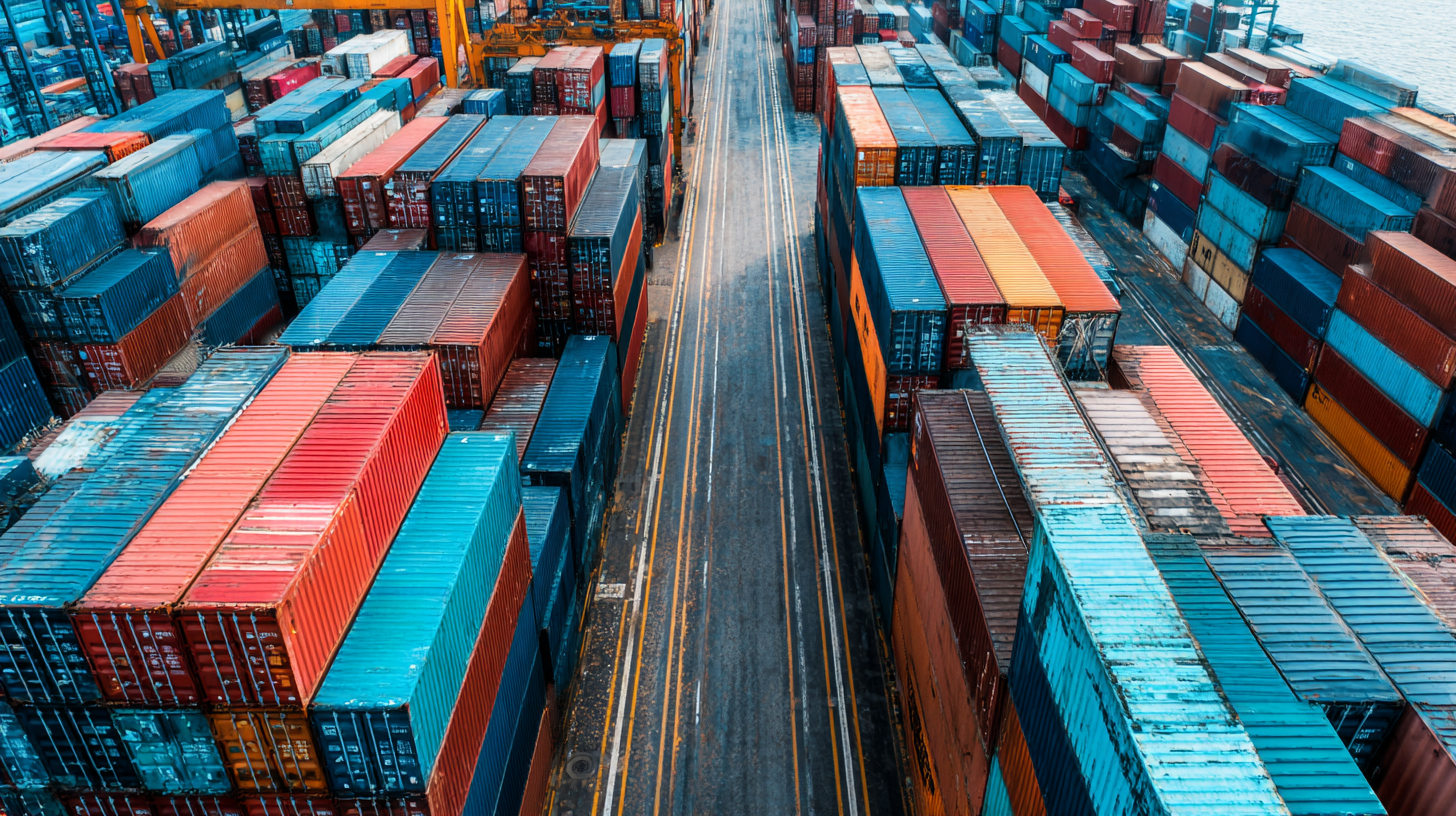
The intersection of cargo containers and e-commerce growth is transforming the logistics landscape and reshaping global trade dynamics. As online shopping continues to surge, the demand for efficient shipping solutions has never been greater. Cargo shipping containers, with their standardized sizes and robust designs, facilitate the rapid movement of goods across vast distances, making them essential for e-commerce businesses that rely on quick delivery to meet consumer expectations.
This evolution in logistics is not without its challenges. The increase in e-commerce has led to greater volumes of smaller shipments, prompting logistics companies to adapt by optimizing last-mile delivery systems and improving inventory management.
Innovations such as smart containers equipped with IoT technology enable real-time tracking and enhance supply chain transparency. As the global marketplace expands, the integration of advanced technologies and logistics solutions will be crucial in ensuring that cargo containers effectively support the booming e-commerce sector, driving further growth in global trade.
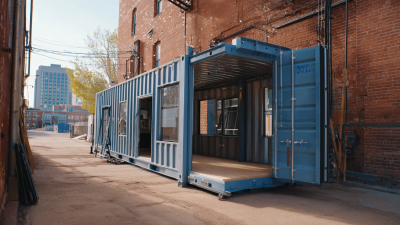
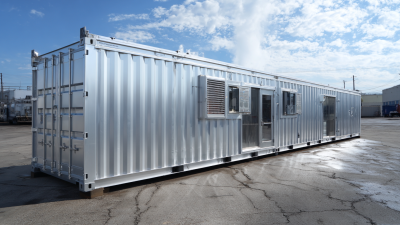
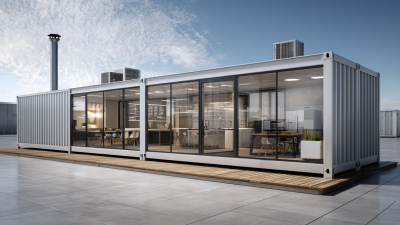
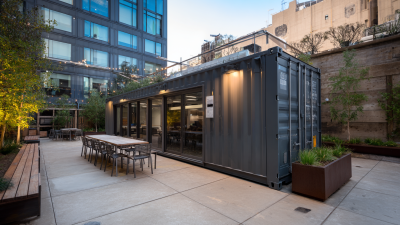
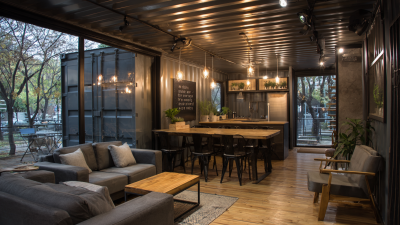
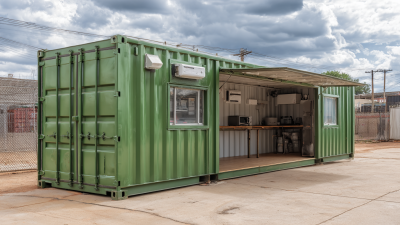
Subscribe to our newsletter for the latest news and exclusive offers.
We hold a long-term view when we build modular rooms taking into consideration your changing needs. Whether it’s shifting your workspace to a new site, redesigning your unit to fit new requirements, or simply clearing the area at the end of the project, our Dismantling & Reassembling teams are pressed into service to get the job done in the quickest possible time and minimum resource wastage.
We understand that every project is unique and therefore has a different set of requirements. That’s why we believe in customizing our solutions to fit individual needs. We are equipped with the right talents, technology, and skillset to offer bespoke modular units, without compromising on turnaround time or quality.
The benefits of choosing Containers ME continues long after the installation of the units as we provide aftersales service for as long as you need. All you have to do is sign the Annual Maintenance Contract (AMC) and enjoy technical support for all the maintenance-related issues. By signing the contract, you can rest assured that a highly professional team of dedicated staff are at your service all year round to attend to your needs.
We specialize in Customized Container Solutions designed to meet diverse needs across the UAE. Our offerings include customized modular containers that cater to various applications, from tailor-made container solutions to bespoke container designs.
Whether you’re looking for personalized container homes or custom modular containers, we have you covered. Our customized container offices provide functional workspaces, while our customized portable containers ensure flexibility on-site. Explore our range of custom container storage units and customized cargo containers to optimize your space.
We also offer custom container leasing and custom container fabrication services, along with customized sea containers designed for secure transport. For specialized needs, our specialized container modifications will help you create the perfect solution for your requirements in both Dubai and the broader UAE.
